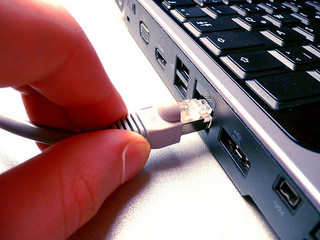
A new report from the American Library Association (ALA) examines the overuse of digital devices and how librarians can steer patrons toward a more balanced diet.
“To build this awareness, librarians and educators can teach information consumers to differentiate actively between gathering and processing information and help them understand when and how each of these modes of thought will benefit them,” writes author Jessie L. Mannisto in her report, “Restoring Contemplation: How Disconnecting Bolsters the Knowledge Economy,” published by ALA’s Office for Information Technology Policy (OITP).
Mannisto worked as a 2011 Google Fellow with OITP, and earned her library degree from the University of Michigan in April 2011. Her 11-page report examines the growing dependence on digital information and devices, including high school students with “smartphones at their side 24/7.”
While Mannisto is not promoting a Luddite mentality, she is advocating that people make healthier choices about the way they absorb information.
“In a hyperconnected culture, our information diet is as important to our well-being as the food we eat,” she writes.
In that regard, librarians can guide patrons towards better practices to help push back and think about the content they’ve digested. Mannisto notes, for example, that when researching information, users should consider what they’ve uncovered before automatically surfing for more data, which may not be necessary. A quiet place of contemplation like a library can be ideal—as long as there’s disconnected space, even without WiFi. She compares this scenario to patrons removing a television set from a bedroom, a way to “train their brains to process the information already gathered.”
The idea of digital detox isn’t new. Reboot, a group of Jewish artists, for example, promote a digital Sabbath, a day off from digital media, information and connectivity. The “Day of Unplugging” held its third annual event in March.
Mannisto believes that beyond completely unplugging, libraries can help their patrons by streamlining technology. An example offering an Internet-free computer loaded only with word-processing software. Silent periods of sustained reading in the K–12 setting can promote contemplative learning.
“Deep thought needs a champion,” says OITP’s Director Alan Inouye in a statement, “and libraries have a long and respected history of promoting contemplation. For example, libraries encourage reading through book lending and children’s storytelling, and we support students working on their term papers. In the digital age, programming to promote thinking is critical and deserves even greater emphasis.”
Photo by Photosteve101.



Good luck! Technology is not to blame for the “lack of contemplation”. Technology encourages sharing and connecting with many people who have similar interests, deepening the contemplation process. The younger generations have become episodic…their brains are working at a faster pace than before. Why is this a bad thing?!